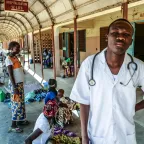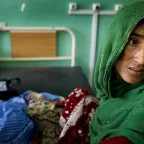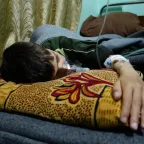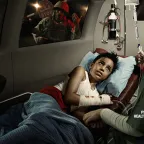Engaging with armed groups to protect health care
… 36 armed groups, the ICRC – as part of the Health Care in Danger initiative – has produced a publication …
… 36 armed groups, the ICRC – as part of the Health Care in Danger initiative – has produced a publication …

… Violence against health care is a persistent feature that continues to … Crescent Movement started the Health Care in Danger (HCiD) Initiative to devote concerted …

… we do to prevent attacks against patients, health workers, hospitals and ambulances? This … outlines the recommendations of the Health Care in Danger initiative. It is aimed at States, …
… bombed. 30 people were killed – including 13 health-care workers – and 37 injured. MSF declares … Cross (ICRC) as part of the Health Care in Danger (HCiD) initiative recorded 2,398 …
… make Tabib and why he backs the message that health workers are #NotATarget. I remember that … Red Cross and the ICRC: joining their Health Care in Danger initiative seemed like the most natural …

… main challenges related to the protection of health care during armed conflict and other … and used together with other Health Care in Danger (HCiD) publications2 and any other …
… last few months, a number of attacks against health-care workers, medical transports and facilities … All those involved with the Health Care in Danger initiative are alarmed by the long-term …

… United Nations General Assembly, the World Health Assembly, ECOSOC's Humanitarian Affairs … 2286 was adopted in May 2016, health-care facilities and personnel have continued to … happening, such as the ICRC's Health Care in Danger initiative or the World Health …

… workers and facilities. Closure of health structures. Life-threatening wounds and … is travelling to a hospital, given that health services in these neighborhoods are … services, primarily emergency health care. We support first responders and hospital …

… the Life&Death campaign, part of the Health Care in Danger (HCiD) project – a global initiative to …

Try one of the following resources:
Created in 1863, the ICRC library, alongside the ICRC archives, provides an indispensable documentary reference on the organization itself and international humanitarian law.
International humanitarian law is based on a number of treaties, in particular the Geneva Conventions of 1949 and their Additional Protocols, and a series of other instruments.
Customary international humanitarian law consists of rules that come from "a general practice accepted as law" and that exist independent of treaty law.